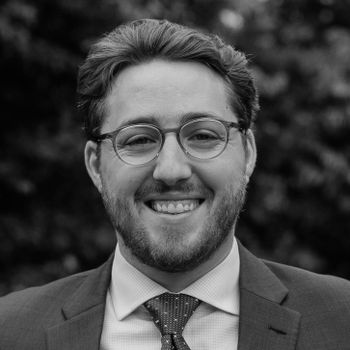SCOTUS misses chance to stop campus Orwellian nightmare
Secret investigations into thoughtcrimes–prompted by classmates surveilling and reporting each other for expressing the wrong ideas.
Brett Nolan is a Senior Attorney at the Institute for Free Speech
Secret investigations into thoughtcrimes–prompted by classmates surveilling and reporting each other for expressing the wrong ideas.
This isn’t a story from the Eastern Bloc during the Cold War, or even present-day China. Nor is it the plot of a dystopian novel. It’s a scenario that now plays out at hundreds of colleges across the United States.
Campus culture in America has tilted decidedly against free speech over the last decade. Many colleges have abandoned any pretense that their campuses are a place for open debate. Instead, “harmful” ideas are shunned, and institutions that used to pride themselves on diversity of thought now demand ideological conformity.
That’s why it is disappointing that the Supreme Court recently passed on the opportunity to hold college administrators accountable for fostering this anti-speech culture at the expense of the First Amendment.
[RELATED: 2023 Outlook: Bias reporting systems continue to infringe 1A rights]
Speech First v. Sands began as a challenge to Virginia Tech’s policy for investigating “bias incidents”—a term that is exactly as Orwellian as it sounds. The university set up a “bias-response team” and encouraged students to report each other for “bias incidents,” a subjective term that included any “expressions against a person or group” based on characteristics like race, gender, or political affiliation. The bias-response team, staffed by university administrators, had the power to investigate reports, engage in intervention and re-education, and refer cases for formal discipline or to the police.
The effect of a policy like this is obvious (if not intentional): Students self-censor in an atmosphere of surveillance, worrying that one wrong word might lead to an investigation—or worse.
This is known in legal jargon as a “chilling effect.” Of course, the First Amendment prohibits the government from preventing individuals from speaking about controversial issues or expressing unpopular opinions. But it also prohibits the government from doing this indirectly, by enacting laws or policies that would cause a reasonable person to limit his own speech out of fear of the potential consequences. Virginia Tech’s bias-response policy did just that.
But Virginia Tech was not the first university to enact a policy like this. Bias-response teams have become endemic at institutions of higher education. Speech First, a national organization focused on preserving free speech on campus, looked at more than 800 universities in 2022 and discovered that over half had enacted similar policies.
That’s no surprise. Bias-response teams are just one more outgrowth of the pervasive “diversity, equity, and inclusion” (DEI) ideology that now permeates every facet of many academic institutions, both public and private. DEI typically demands that students, faculty, and staff support—often publicly—certain progressive beliefs about race and gender ideology. Any dissent or opposing viewpoint that conflicts with DEI precepts can often result in formal or informal sanctions.
Bias-response teams and similar policies are crucial for enforcing this new world order dominated by DEI. By deputizing students and requesting they report each other for saying the wrong thing or having the wrong beliefs, university administrators can monitor every classroom, hallway, and dormitory at all times—turning college campuses into mini surveillance states. Few students would feel comfortable voicing a dissenting view in such an environment.
DEI policies are a major problem at private institutions, often leading to oppressive, anti-speech rules. They are even more problematic at state-funded colleges like Virginia Tech, however, because these schools are bound by the First Amendment and its guarantee of free speech.
[RELATED: Legal group scores win in fight against bias reporting systems]
That’s why Speech First v. Sands could have been so pivotal. Justice Thomas, dissenting from the Court’s decision not to take the case, said it raised “high-stakes issues for our Nation’s system of higher education.” He’s right. And the Supreme Court could have used the case to end the disturbing practice of having students report one another for thought crimes. Instead, the Court has allowed many universities to continue to use bias-response teams and similar policies as tools to suppress constitutionally protected speech.
Making matters worse, the Court’s inaction incentivizes colleges to engage in future gamesmanship to avoid legal challenges. The Court denied the petition because Virginia Tech changed its policy shortly before Speech First sought Supreme Court review. This is a tactic that government agencies often deploy to avoid judicial review after adopting an obviously unconstitutional policy. Colleges can enforce illegal rules for years, only to abandon them just in time to prevent a court from weighing in.
Courts should not tolerate such maneuvers—particularly when free speech is on the line. Instead, courts should see these tactics for what they are: legal sleight-of-hand to suppress speech without consequence.
The Supreme Court’s refusal to hear Speech First v. Sands is a setback for free speech, but the fight for student First Amendment rights must continue. Universities should foster an atmosphere of open dialogue without fear of retribution, not encourage students to surveil and report on the wrongthink of their classmates. And when the next opportunity to strike down these regimes presents itself, I hope the Supreme Court takes it.
Editorials and op-eds reflect the opinion of the authors and not necessarily that of Campus Reform or the Leadership Institute.

